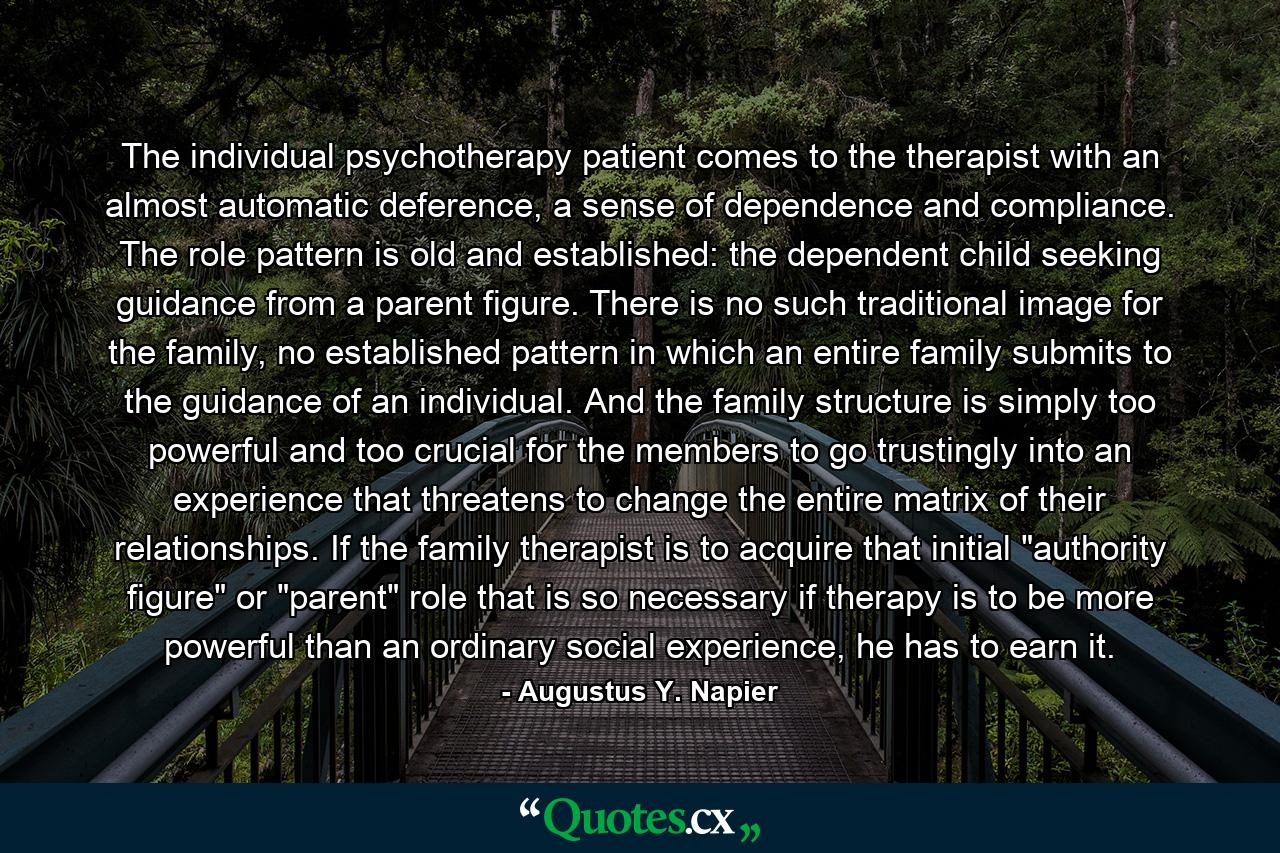The individual psychotherapy patient comes to the therapist with an almost automatic deference, a sense of dependence and compliance. The role pattern is old and established: the dependent child seeking guidance from a parent figure. There is no such traditional image for the family, no established pattern in which an entire family submits to the guidance of an individual. And the family structure is simply too powerful and too crucial for the members to go trustingly into an experience that threatens to change the entire matrix of their relationships. If the family therapist is to acquire that initial “authority figure” or “parent” role that is so necessary if therapy is to be more powerful than an ordinary social experience, he has to earn it.
